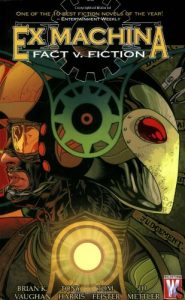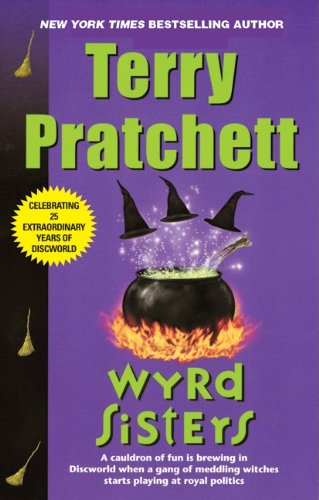Apparently, the first omnibus of collected old Buffy comics didn’t leave that much of an impression on me, because I’ve felt no particular drive to read the next one since. The only reason I did now is because I’ve been trying to put off starting something new before the next Walking Dead collection comes out. But it’s been delayed by another month at least, and what the hell is up with all that? So, I caved. But the thing is, I mostly liked the first Buffy collection, both in my memory and in my review, so on the whole, inexplicable!
Volume 2 picks up still a little before the start of the series, but then rushes ahead into early season 3; I’m left with the impression that the comic didn’t start until season 3 or later, and that’s why things have moved so fast. As much as I still appreciate that the order of the comics is in show-chronology rather than publication, it is a bit jarring to see Dawn in the earliest comics, and then have her vanish from later ones when the writers were not aware that she would exist later.[1] In any event, most of these stories don’t do much to indicate when they are set, so chronology lets me only spend a few minutes trying to work it out, instead of the hair-tearing that would be happening if they were just scattered randomly.
As for the book itself: definitely a bit of a letdown from the previous. Part of it is that the art is either worse, or still as iffy but stands out again from what I’m used to, after the delay. But also, the stories mostly just didn’t do it for me. The first long one was a little too heavy on existential angst, the ones focused on writer favorites Spike and Drusilla were basically fine, the one set during Angelus in season 2 was quite good, and the remaining couple were pretty meh; one included an incomprehensible denouement, and the other had Giles’ niece as a really annoying character who contributed nothing. She wasn’t even whoa awesome enough to write her off as a Mary Sue.
I never really disliked any of it, besides the niece. But I occasionally wished it would be over so I could be reading something more interesting. This makes me skeptical about my likelihood to buy future volumes, barring if I see them used somewhere.
[1] But she’s still added a bit of flavor to those pre-series issues, and I can get behind that.

 The
The  I’ve just spent some time[1] looking over my past several Discworld reviews. And my memory matched the apparent reality, which is that
I’ve just spent some time[1] looking over my past several Discworld reviews. And my memory matched the apparent reality, which is that